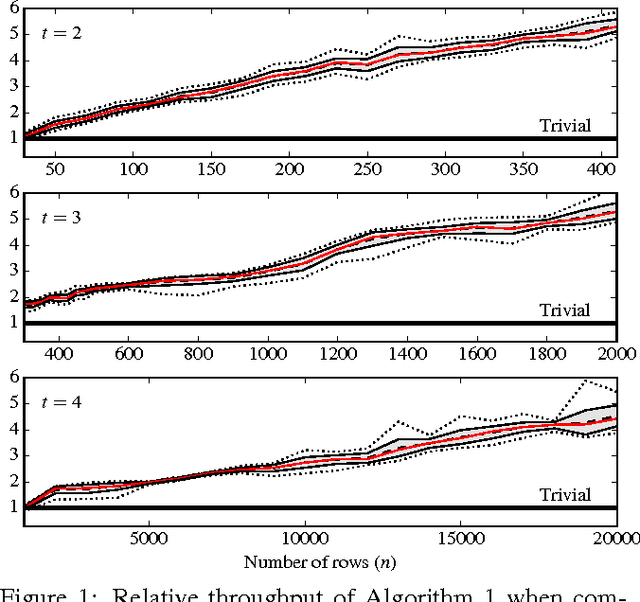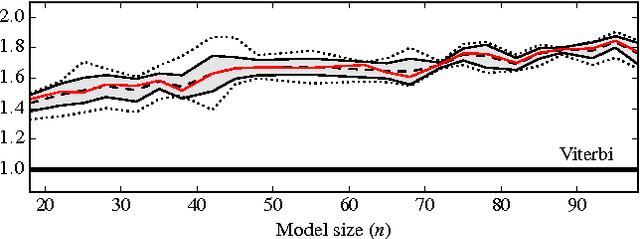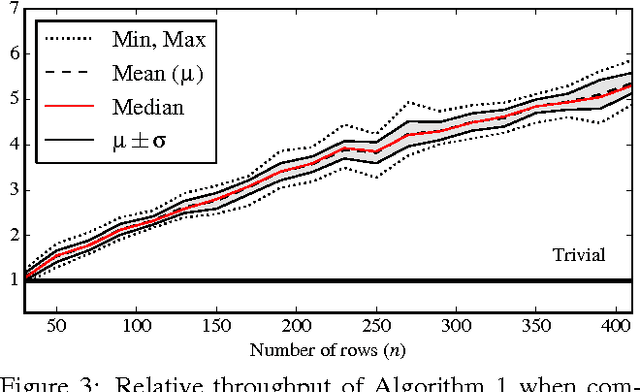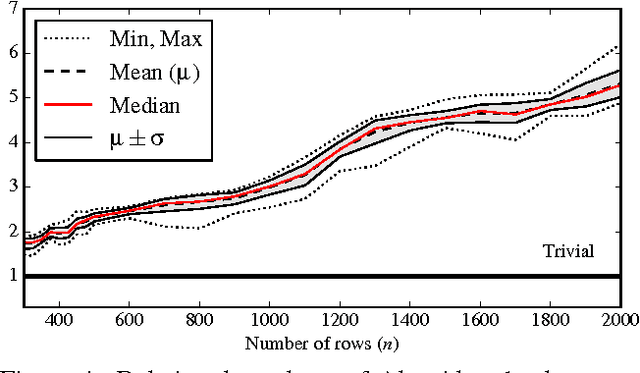Decoding Hidden Markov Models Faster Than Viterbi Via Online Matrix-Vector (max, +)-Multiplication
Paper and Code
Dec 11, 2015



In this paper, we present a novel algorithm for the maximum a posteriori decoding (MAPD) of time-homogeneous Hidden Markov Models (HMM), improving the worst-case running time of the classical Viterbi algorithm by a logarithmic factor. In our approach, we interpret the Viterbi algorithm as a repeated computation of matrix-vector $(\max, +)$-multiplications. On time-homogeneous HMMs, this computation is online: a matrix, known in advance, has to be multiplied with several vectors revealed one at a time. Our main contribution is an algorithm solving this version of matrix-vector $(\max,+)$-multiplication in subquadratic time, by performing a polynomial preprocessing of the matrix. Employing this fast multiplication algorithm, we solve the MAPD problem in $O(mn^2/ \log n)$ time for any time-homogeneous HMM of size $n$ and observation sequence of length $m$, with an extra polynomial preprocessing cost negligible for $m > n$. To the best of our knowledge, this is the first algorithm for the MAPD problem requiring subquadratic time per observation, under the only assumption -- usually verified in practice -- that the transition probability matrix does not change with time.
 Add to Chrome
Add to Chrome Add to Firefox
Add to Firefox Add to Edge
Add to Edge